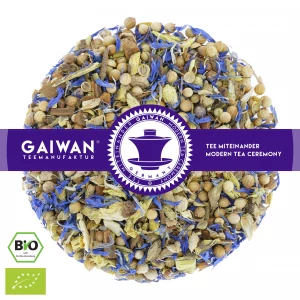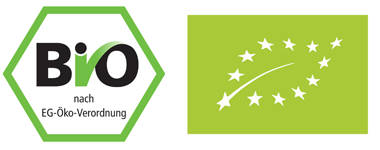Loose Tea with Cornflower
The cornflower is something special. For many generations it was used as a medicinal plant for all kinds of problems. But in the course of time, researchers and healers discovered new herbs with better or additional healing powers, so that the cornflower played a lesser and lesser significance. Nevertheless, it is often used in teas to visually enhance them with its bright blue petals, such as in our delicious Ayurveda Vata Tea. Why not give it a try?
Cornflower Health Benefits
Just because there are now other medicinal plants with similar or better effects does not mean that cornflower has had its day. Freshly brewed cornflower tea is digestive and diuretic thanks to its tannins and bitter substances. The herb also seems to have an anti-inflammatory effect. The flowers are usually used for cornflower tea. Cornflowers are also often a component of cough tea, bladder tea or teas for relaxation or for a better night's sleep. In the past, cornflowers were also used to treat fever or eye diseases. It can also be used externally, for example by dabbing wounds with a cloth dipped in cornflower tea. However, this should not replace a trip to the doctor if the wound refuses to heal, but only serves to prevent inflammation.
Apart from its health aspect, the cornflower is one of the most popular plants for bumblebees, bees and butterflies, as it is very rich in nutrients for the insects. It usually grows in wildflower meadows and those who want to plant a wildflower bed in their garden usually have cornflower seeds in the mix.





